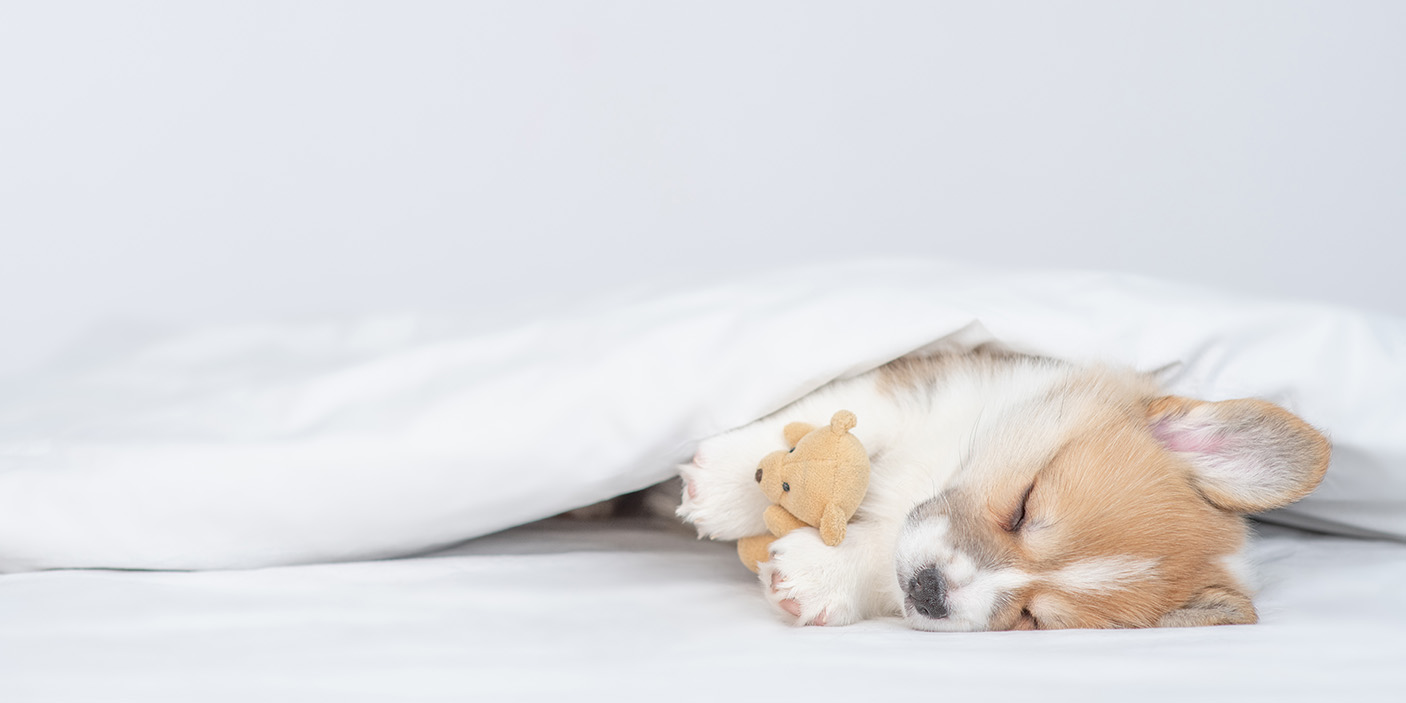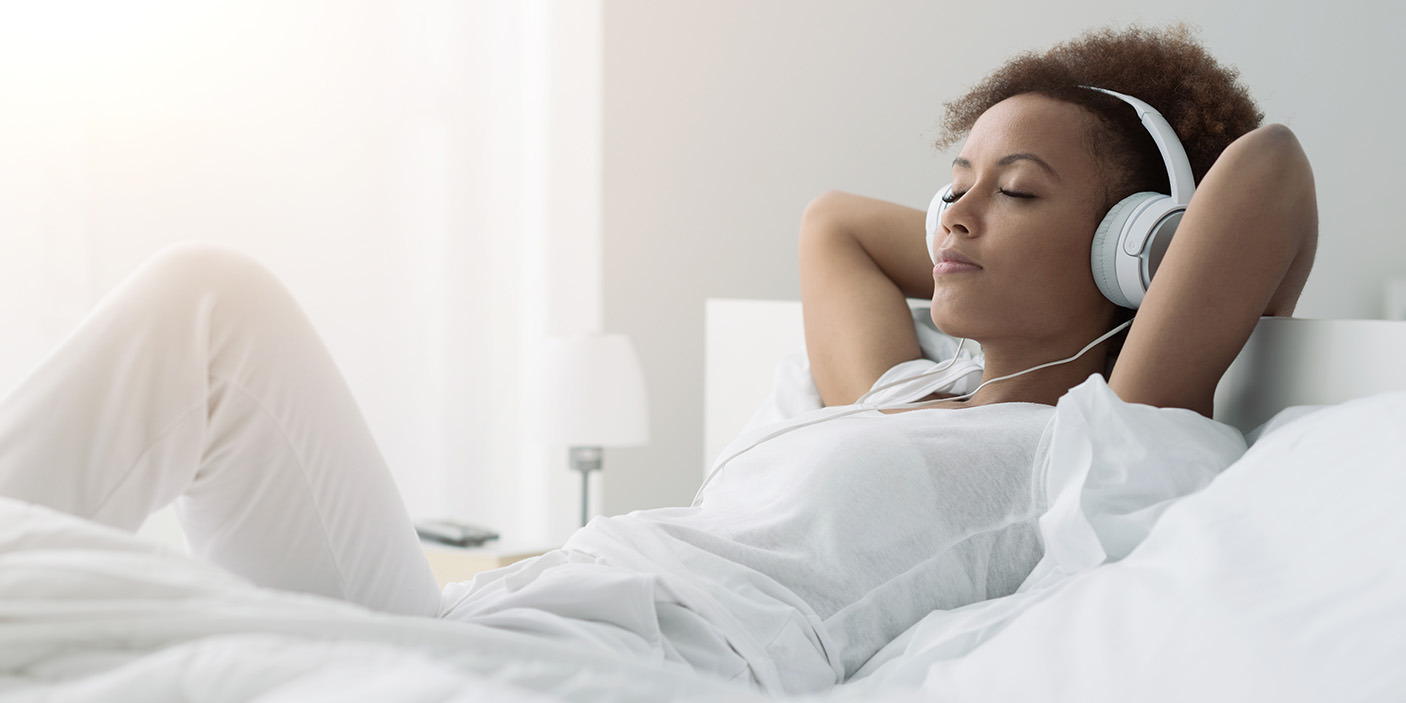Getting a good night’s sleep is one of the most essential things for optimal health and wellbeing. However, a lot of people struggle with poor sleep quality and are dying to learn how to sleep better.
These tips will teach you how to sleep better by improving your sleep environment, habits, and hygiene.
These science-backed recommendations, will help you can fall asleep faster, stay asleep throughout the night, and wake up feeling refreshed and ready for the day.
Whether you have occasional difficulty sleeping or have chronic insomnia, you can train your mind and body to sleep better with the advice in this guide.
Why Sleep Is So Important

Sleep allows your body and mind to recharge. Not getting enough sleep negatively impacts nearly every system in your body:
- Immune system: Being deprived of sleep weakens your immune system, making you more susceptible to illness and infection.
- Cardiovascular health: Lack of sleep puts you at risk for high blood pressure, stroke, and heart disease.
- Mental health: Not having enough sleep leads to a higher risk of anxiety, depression, and other mental health issues.
- Cognition: Learning, memory formation, and higher brain functions are dependent on good sleep. Contrary, poor sleep leads to diminished concentration, decision making, and productivity.
- Metabolism: Not getting enough sleep can lead to weight gain and obesity. It disrupts the hormones that control hunger and satiety.
- Performance: Sleep loss reduces reaction time, motor skills, and athletic performance. You also end up more prone to accidents or injuries.
As an adults you should aim for 7-9 hours of sleep per night. Consistent and uninterrupted sleep is key for waking up refreshed and ready for the day.
17 Ways to Improve Your Sleep
Follow these science-backed tips for better sleep:
1. Maintain Consistent Sleep Hours
Going to bed and waking up at consistent times reinforces your body’s sleep-wake rhythm and can improve sleep quality.
Try to keep the same schedule on weekends too. Limit schedule changes to 1 hour or less when possible.
2. Develop a Relaxing Bedtime Routine
Perform relaxing activities before bed like light yoga, reading, or taking a warm bath. This signals your brain to start winding down.
Repeat the same sequence each night to strengthen the association between your routine and sleep.
3. Limit Daytime Naps
Daytime naps reduce sleep drive. If you need to nap, limit it to 20-30 minutes in the early afternoon. Avoid napping after 3 p.m.
4. Avoid Stimulants Before Bed
Stop consuming caffeine 6 hours before bedtime. Avoid nicotine and eating big, spicy meals in the evening.
Also limit alcohol – it may help you fall asleep faster but causes sleep disruptions later.
5. Exercise Regularly
Aim for at least 20-30 minutes per day of moderate exercise. Morning and afternoon workouts won’t interfere with sleep.
Avoid vigorous exercise 2-3 hours before bedtime as it raises core body temperature.
6. Optimize Your Sleep Environment

Keep your bedroom cool (65°F), completely dark, quiet, and clean. Use blackout curtains, a white noise machine, and make sure your bedding is comfortable.
Reserve your bed only for sleep and sex – no TV or smartphones.
7. Wind Down Before Bed
Dim lights 2 hours before bedtime and avoid bright screens. Do relaxing activities like light reading, stretching, or listening to soothing music.
Practice deep breathing, meditation, or mindfulness to reduce stress and distracting thoughts.
8. Go to Bed When Sleepy
Only go to bed when you feel legitimately tired. If you don’t fall asleep after 20 minutes, get up and do a relaxing activity until you feel sleepy again.
9. Wake Up With Bright Light
Exposure to sunlight (or bright light) in the morning tells your brain to stop making sleep hormones. Open blinds and turn on lights.
10. Eat a Healthy, Balanced Diet
Eat foods that may promote sleep like tart cherry juice, kiwi, nuts, seeds, whole grains, legumes, and calcium-rich foods.
Avoid big, heavy meals and sugary foods in the evening. Stay hydrated but limit fluids 1-2 hours before bed.
11. Improve Your Sleep Environment
Upgrade your mattress and bedding if needed – aim to replace every 8-10 years. Make sure your pillow properly supports your head/neck.
Minimize noise, light, and distractions. Keep a comfortable bedroom temperature around 65°F.
12. Set a Consistent Wake-Up Time

Set your alarm and wake up at the same time daily, even if you didn’t sleep well or it’s the weekend. This stabilizes your sleep cycle.
Try waking up earlier – exposure to light may help you fall asleep earlier in the evening.
13. Take a Warm Bath
Raise your body temperature slightly by taking a warm (not hot) bath 1-2 hours before bedtime. As your body cools down, it preps you for sleep.
Add Epsom or magnesium salts to relax tense muscles. Lavender, chamomile or valerian oil may further induce drowsiness.
14. Rule Out Underlying Conditions
Talk to your doctor if you consistently have difficulty sleeping. Insomnia or other issues like sleep apnea may be the cause.
Underlying mental health problems like anxiety, ADHD or depression can also impair sleep. Seek professional treatment when needed.
15. Keep a Sleep Diary

Record details like bedtime, wake time, sleep quality, diet, exercise and other factors. Look for patterns interfering with sleep.
Bring your sleep diary to your doctor to help diagnose potential issues.
16. Avoid Sleeping Pills Long-Term
Sleep medications can help short-term, but may cause dependence or impaired sleep quality if taken for too long. Try limiting use to 2-4 weeks max.
17. See a Sleep Doctor if Needed
If you’ve tried good sleep hygiene but still struggle, see a sleep specialist. They can diagnose sleep disorders through sleep studies and develop an effective treatment plan.
How to Fall Asleep Faster
If you have trouble falling asleep quickly, try:
- Close your eyes and focus on relaxing each muscle group from head to toe. Imagine a wave of relaxation sweeping through your body.
- Do deep breathing exercises. Inhale deeply through your nose, hold for 3-5 seconds, then slowly exhale through your mouth.
- Visualize a peaceful, calming place like a beach or meadow. Imagine the details using all your senses.
- Listen to relaxing audio programs like binaural beats, nature sounds, or meditation music.
- Take a warm shower or bath 1-2 hours before bed.
- Take 450-900 mg of magnesium glycinate or citrate.
- Sip chamomile or passionflower tea.
- Diffuse lavender or roman chamomile essential oil.
How to Stay Asleep Throughout the Night
To avoid waking up in the middle of the night:
- Avoid alcohol, caffeine, nicotine, and eating 2-3 hours before bed.
- Don’t drink fluids within 2 hours of bedtime.
- Lower the thermostat – cool room temperatures promote continuous sleep.
- Block out noise using earplugs or a white noise machine.
- Make sure your mattress and pillows are comfortable. Upgrade if needed.
- Go to bed when you’re truly tired and limit daytime naps.
- Set a bedtime routine and wind down period before getting into bed.
- Rule out underlying issues like urinary problems, acid reflux, pain conditions, or sleep disorders.
- If awakened, try meditation, deep breathing, or muscle relaxation exercises to fall back asleep.
- Avoid checking the time or using electronics if you wake up.
Common Sleep Disorders and Treatment
Sleep disorders like insomnia, sleep apnea and restless leg syndrome can impair quality sleep. See a doctor or sleep specialist if you suspect you have one of the following conditions:
Insomnia – Difficulty falling or staying asleep. Treat with sleep hygiene, cognitive behavioral therapy, and short-term medication if needed.
Sleep Apnea – Interrupted breathing during sleep. Treat with CPAP machine or oral appliance. Weight loss can also help in some cases.
Restless Leg Syndrome – Urge to move legs and unpleasant sensations. Treat with medications, leg massages, pneumatic compression devices.
Narcolepsy – Excessive daytime sleepiness and falling asleep randomly. Treat with stimulant medications and scheduled naps.
Delayed Sleep Phase Disorder – Extreme night owl schedule. Use bright light therapy in the morning, light avoidance in the evening, and melatonin.
Periodic Limb Movement Disorder – Involuntary leg jerking during sleep. Treat with medications or pneumatic compression.
Consult your physician if you think you have one of these conditions before attempting self-treatment. Proper diagnosis is key.
We invite you to explore the world of relaxing videos and experience their benefits for yourself. And don’t forget to check out our YouTube channel, Sound2Sleep, for a variety of soothing nature video and sound content.
Want more tips on how to sleep better? Check out our article Unlock the Miracle of Restorative Nights with Sleep Cycle Improvement



